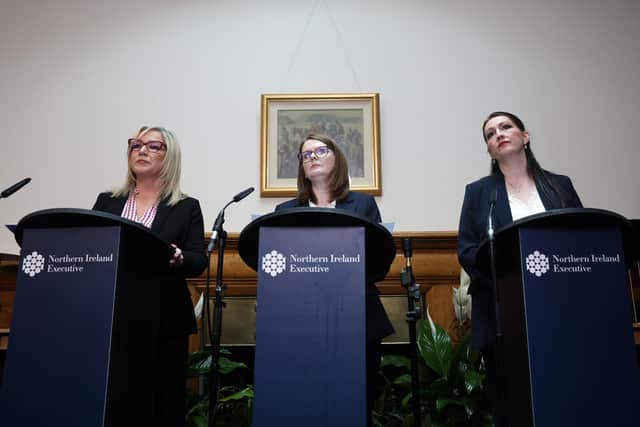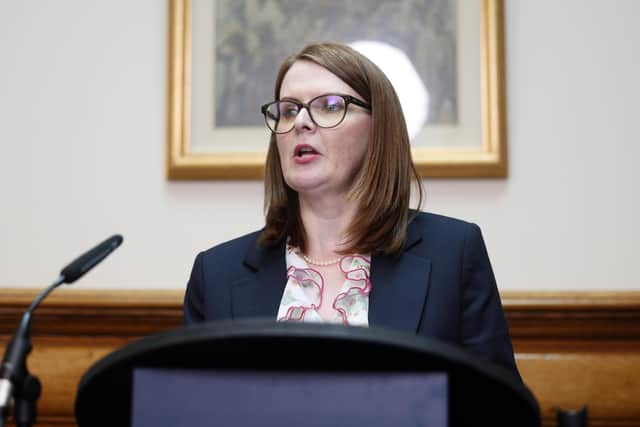Northern Ireland Budget: £88.5m for A5 Derry to Aughnacloy; £34m to tackle NHS waiting lists and £25m for childcare strategy
and live on Freeview channel 276
Speaking following the meeting, Minister Archibald said on Thursday: “Since devolution was restored, we have been really clear this was always going to be a difficult budget.
"The stark reality is the demands on our finances far outstrip the funding available many times over. No department has received the level of funding it has bid for. As an Executive, we have had to make tough choices and prioritise the funding envelope we have.
Advertisement
Hide AdAdvertisement
Hide Ad“With increased demands on services and rising costs, I recognise these allocations won’t provide sufficient funding for departments to do everything they want - that is regrettable for all Executive Ministers.


“The Budget underlines our commitment to health with it receiving over half (51.2%) of the total amount allocated to departments for day-to-day costs, including £34m to tackle waiting lists, while Education has received almost a fifth of the funding.
“Recognising the importance of a Childcare Strategy, £25m is being set aside for this.”
Departmental Resource budgets allocated per department are as follows: Department of Health – £7.76bn; Department of Education – £2.87bn; Department of Justice – £1.26bn; Department for Communities – £856.0m; Department for the Economy – £766.6m; Department of Agriculture, Environment and Rural Affairs – £577.3m; Department for Infrastructure – £559.5m; Department of Finance – £208.1m; The Executive Office - £183.2m.
Advertisement
Hide AdAdvertisement
Hide AdOutlining capital funding allocations, Minister Archibald said: “The Draft Budget allocates £2.1bn of capital funding. While this isn’t sufficient to meet all the demands, it will provide investment in our hospitals, school estate, roads and transport network, as well social housing.


“This includes £181m for Executive flagship projects including the A6, the Mother and Children’s Hospital, the Belfast Transport Hub, the Sub-Regional Stadia programme and Casement Park, as well as a new Learning Development Centre for the Fire and Rescue Service.
"£88.5m will support the much-needed delivery of the A5 road scheme, while £20m will support the Strule Campus.
“These projects will support the construction industry, unlock economic benefits and make a hugely positive impact on people’s lives here.”
Advertisement
Hide AdAdvertisement
Hide AdDepartmental Capital DEL allocations include: Department for Infrastructure – £820.1m; Department of Health – £416.8m; Department of Education – £254.3m; Department for the Economy – £221.9m; Department for Communities – £133.4m; Department of Justice – £91.9m; Department of Agriculture, Environment and Rural Affairs – £95m; Department of Finance – £38.9m; The Executive Office - £10.5m.
Outlining her determination to continue making the case for more investment in public services, the Finance Minister concluded: “The Executive recognises the need for transformation and the reform of our public services. To do that, we need upfront investment.
“I will continue to make the case to the British Government that the Executive must be properly funded to put the Executive’s finances on a sustainable footing, that we need to be provided with a multi-year budget which enables long-term planning for service delivery and have the appropriate powers to be able to deliver high quality public services and support workers and families.”
Comment Guidelines
National World encourages reader discussion on our stories. User feedback, insights and back-and-forth exchanges add a rich layer of context to reporting. Please review our Community Guidelines before commenting.